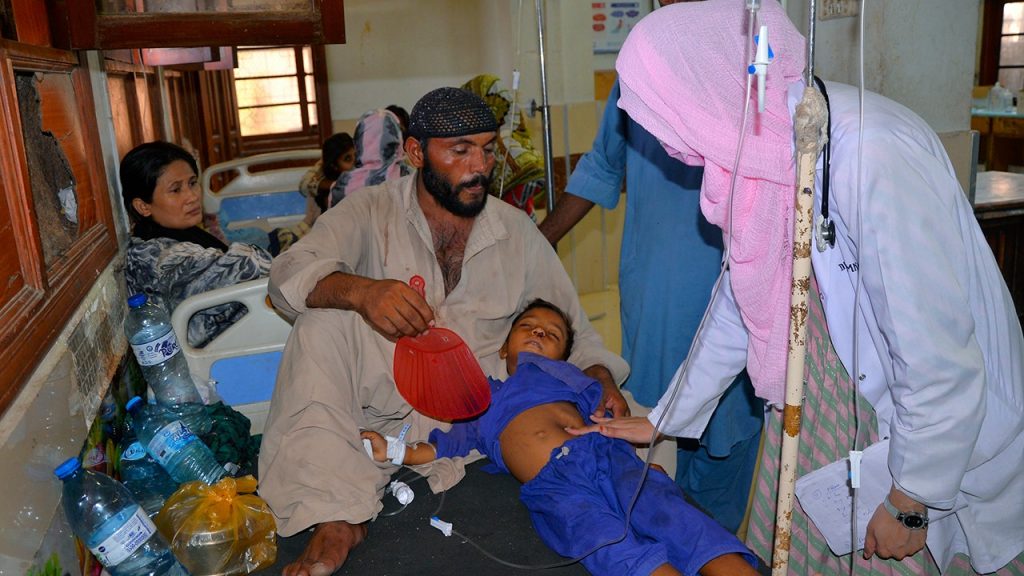A recent study by the United Nations children’s agency, UNICEF, suggests that developing resilient energy systems to power health facilities in Pakistan could prevent over 175,000 deaths in the country by 2030. Additionally, this initiative could contribute $296 million to Pakistan’s economy over the next 20 years by reducing rates of maternal, adult, and infant mortality. The study comes at a critical time as Pakistan faces an intense heatwave that has overwhelmed the healthcare system, with temperatures reaching as high as 49 degrees Celsius in some areas.
In the midst of the heatwave, forest fires have also been a challenge, further straining the existing electricity sources as demand for power increases. UNICEF emphasizes the importance of resilient energy supplies that are reliable, flexible, accessible, and of high quality to withstand and quickly recover from unforeseen shocks like power outages and floods. The lack of electricity in many schools and health centers can have a negative impact on children’s education and health outcomes. The representative of UNICEF in Pakistan, Abdullah Fadil, highlights the critical role that electricity plays in ensuring the welfare of children, especially during extreme weather events like the current heatwave.
According to UNICEF, a staggering 3.5 billion people worldwide live without reliable power sources. Climate change is exacerbating the situation in Pakistan, with flooding triggered by climate-induced monsoon rains in 2022 resulting in significant loss of life and damage to water infrastructure. The country experienced its wettest April since 1961 this year, with heavy rains causing fatalities and destruction of property. Additionally, rising temperatures in May have raised concerns about glacial melting in the northwest, which could lead to flooding. UNICEF has been actively involved in restoring water systems and implementing solar electrification initiatives in Pakistan to address the challenges posed by climate change.
UNICEF stresses the need for greater investment in renewable energy resources in Pakistan to harness the country’s abundance of such resources and improve the welfare of children. The private sector is encouraged to play a more significant role in these efforts, as public sector resources may not be sufficient to meet the growing energy demands. By utilizing renewable energy sources, Pakistan can ensure a more sustainable and resilient energy system that benefits not only the current population but also future generations.
Overall, building resilient energy systems in Pakistan is crucial not only for saving lives and improving health outcomes but also for bolstering the economy and mitigating the impact of climate change on vulnerable populations. Through strategic investments in renewable energy and infrastructure, the country can better prepare for and respond to extreme weather events and ensure access to reliable power supplies for schools, health facilities, and communities. UNICEF’s study underscores the urgency of these efforts and the potential benefits that can be realized by prioritizing resilient energy solutions in Pakistan.













